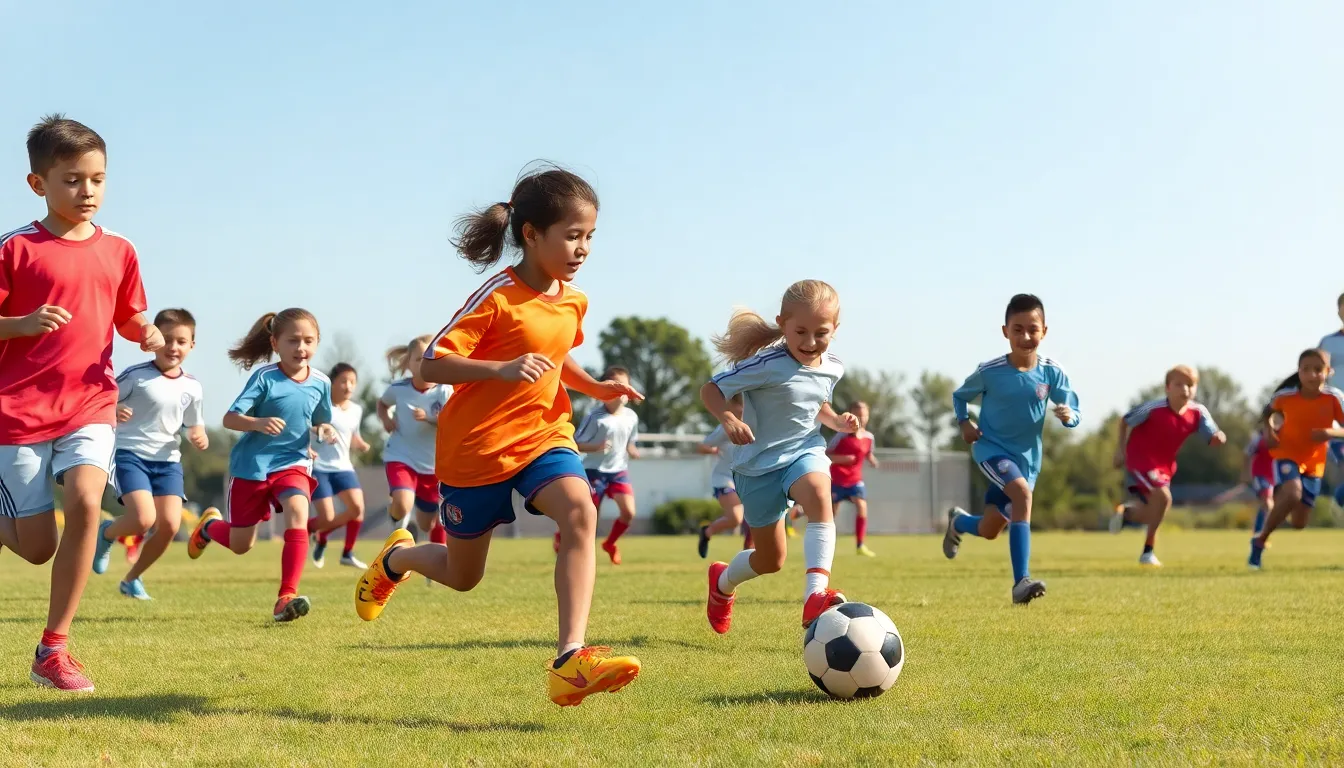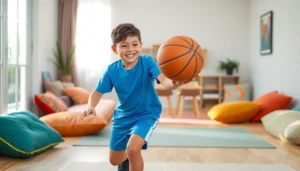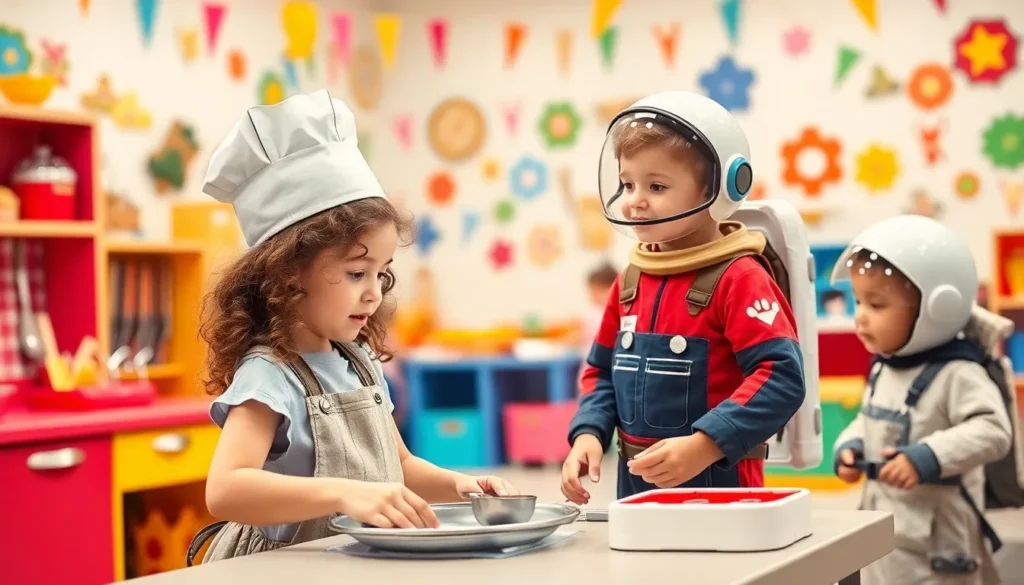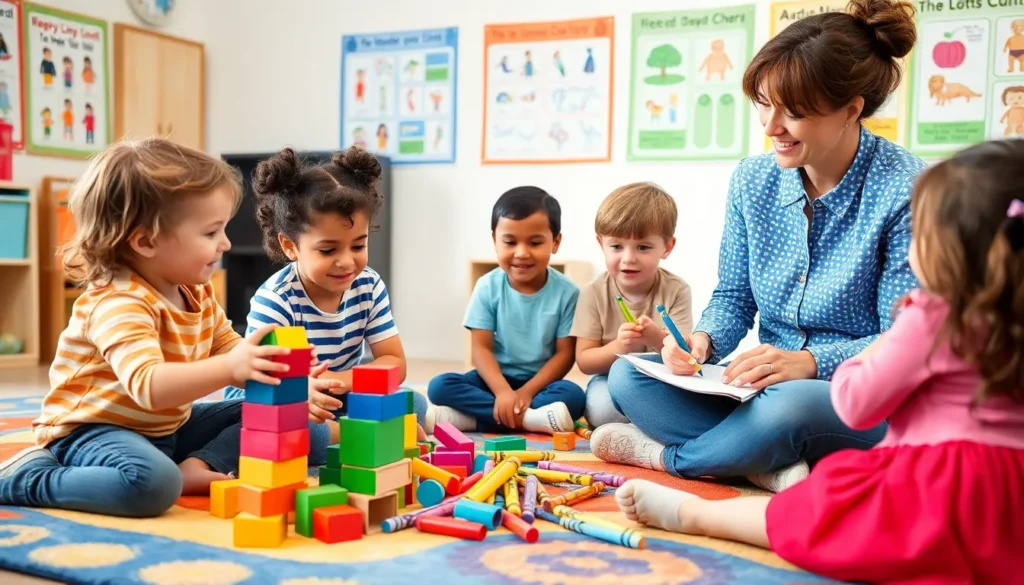Table of Contents
ToggleFinding the right outlet for kids with ADHD can feel like searching for a needle in a haystack. But what if that needle is actually a soccer ball or a basketball? Engaging in sports not only helps channel their boundless energy but also boosts focus and social skills. Plus, who doesn’t love the thrill of a good game?
Understanding ADHD in Children
ADHD, or Attention-Deficit/Hyperactivity Disorder, affects approximately 6 to 9 percent of children in the U.S. It manifests in several ways, including difficulty maintaining focus, impulsivity, and sometimes hyperactivity. These characteristics pose challenges in academic settings and social situations.
Children with ADHD often struggle to follow instructions, leading to frustration in both themselves and their caregivers. They may find it hard to listen during conversations, impacting their ability to connect with peers. Additionally, impulsivity can result in hasty decisions that create further complications in their interactions.
Engagement in structured sports activities benefits children with ADHD. Sports provide a focus for their energy and can enhance attention span through guided practice. Team sports, such as basketball or soccer, promote social skills as children learn to communicate and collaborate with teammates. Structured environments with clear rules help maintain their attention during games.
Developing self-regulation skills is crucial. Sports demand a level of discipline and adherence to instructions, helping children practice these skills in real-time. Positive reinforcement in sports builds self-esteem and encourages a sense of achievement.
Parents and coaches play a pivotal role in supporting children with ADHD. Guidance and understanding can foster a love for sports, making participation enjoyable and beneficial. Regular physical activity contributes to overall well-being, improving mood and reducing anxiety, which many children with ADHD experience.
Engaging in sports serves as a proactive approach for children with ADHD, combining physical activity with opportunities for social connection. Each game or practice session can become a stepping stone toward improved focus and interpersonal relationships.
Benefits of Sports for ADHD Kids

Sports provide numerous advantages for children with ADHD. Engaging in physical activity fosters a supportive environment that promotes growth.
Physical Benefits
Physical activity improves overall fitness. Regular participation enhances cardiovascular health, builds strength, and increases coordination. Kids experience improved motor skills, which can lead to a greater sense of control in various activities. Engaging in sports helps burn excess energy, reducing impulsivity and hyperactivity. It also encourages healthy habits that contribute to long-term well-being. Studies show that children who exercise regularly tend to maintain healthier weights, showcasing the direct link between sports and physical health.
Mental Benefits
Mental health benefits arise from engaging in sports. Children develop better focus through structured activities, which translates to improved attention spans in academic settings. Participation in team sports promotes self-esteem and boosts confidence as kids learn new skills and achieve goals. Sports also offer an outlet for stress and anxiety, with physical activity releasing endorphins that elevate mood. Furthermore, children cultivate essential life skills, such as discipline and perseverance, while working towards team objectives. This combination of mental benefits creates a foundation for success both in and out of the classroom.
Best Sports for ADHD Kids
Finding the right sports for kids with ADHD enhances their physical and mental well-being. Sports that combine structure and fun can significantly benefit these children.
Team Sports
Team sports like soccer, basketball, and baseball provide an excellent environment for kids with ADHD. These activities promote teamwork and communication, allowing children to develop social skills while staying active. They often foster a sense of belonging, which can boost self-esteem. Regular participation keeps energy levels in check and improves focus during games and practices. The excitement of scoring a goal or making a play contributes to joy and engagement, further encouraging consistency in participation.
Individual Sports
Individual sports such as swimming, martial arts, and tennis offer distinct advantages for kids with ADHD. These sports allow for personal growth while focusing on self-discipline and responsibility. In settings like martial arts classes, children learn respect and perseverance, essential for building character. Swimming provides a calming effect, yet it still promotes fitness and coordination. Engaging in these sports can help manage impulsivity by allowing children to set personal goals. The one-on-one interaction with coaches further enhances motivation and accountability.
Tips for Encouraging Sports Participation
Encouraging sports participation in children with ADHD involves understanding their needs and preferences for effective engagement.
Finding the Right Sport
Explore various sports to identify what resonates best with the child. Children’s interests often guide this discovery process. Individual sports like swimming, martial arts, or tennis provide opportunities for personal achievement. Team sports such as soccer, basketball, or baseball promote teamwork and social interaction. Observing the child during activities can help pinpoint what excites and motivates them. Prioritize choices that combine structure and fun to enhance focus and engagement. Flexibility in participation allows for experimentation without pressure.
Setting Realistic Goals
Establish achievable goals tailored to the child’s capabilities and interests. Start with small, specific objectives to build confidence. These goals might include improving shooting accuracy in basketball or completing a certain number of laps in swimming. Progress should be assessed regularly, celebrating every accomplishment, no matter how minor. Creating an environment that emphasizes personal growth over competition reduces anxiety and encourages persistence. Communicate with coaches to ensure alignment on what goals work best for the child, fostering a supportive atmosphere that promotes ongoing participation.
Engaging children with ADHD in sports can transform their lives by providing structure and fostering essential skills. These activities not only improve physical fitness but also enhance focus and social interactions. By exploring various sports and aligning them with a child’s interests, parents can create a supportive environment that encourages growth and development.
The journey through sports can empower children to manage their impulses and build self-esteem while enjoying the camaraderie of teamwork or the discipline of individual pursuits. As they learn to navigate challenges in sports, they also gain valuable life skills that extend beyond the field. Embracing sports as a tool for positive change can lead to lasting benefits for children with ADHD.










